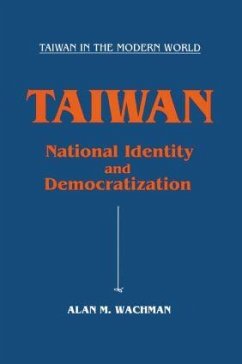At a moment when clashing forces of nationalism and heightened demands for political reform dominate the political life of many states, the democratization of Taiwan is a drama worthy of study. Since 1987, Taiwan has experienced a sequence of political changes that few thought possible and which standing theories of democratization assert could not happen. At issue is the persistent uncertainty about the national identity of Taiwan. This reflects the stark clash of nationalist visions: the Chinese nationalism manifested by the Mainlander elite in the ruling Nationalist Party (KMT), and the Taiwanese nationalism manifested by those who advocate that Taiwan be an independent state. By any measure, Taiwan has become a democracy despite the inability of the political elite to reach consensus about what is the national identity of the state. This study examines the history of the democratization in Taiwan from the perspective of the national identity problem. Based on interviews with leading figures in the KMT and opposition parties, it elucidates the nature of the conflict among political elites about identity since the Nationalists came to Taiwan in 1947, describes how the conflict about identity has affected the course of democratization since the onset of reform in 1987, and explains why the political science theories about nationalism and democratization do not account for what has happened in Taiwan. The author has written to reach a broad readership and has not burdened the text with excessive jargon that would limit its accessibility. The historical discussion is interwoven with quotations from contemporary notables as well as commentary about conceptual matters pertaining to theprocess of democratization. This results in a work that will appeal to both the Taiwan specialist as well as those interested in national identity and the process of democratization per se.








